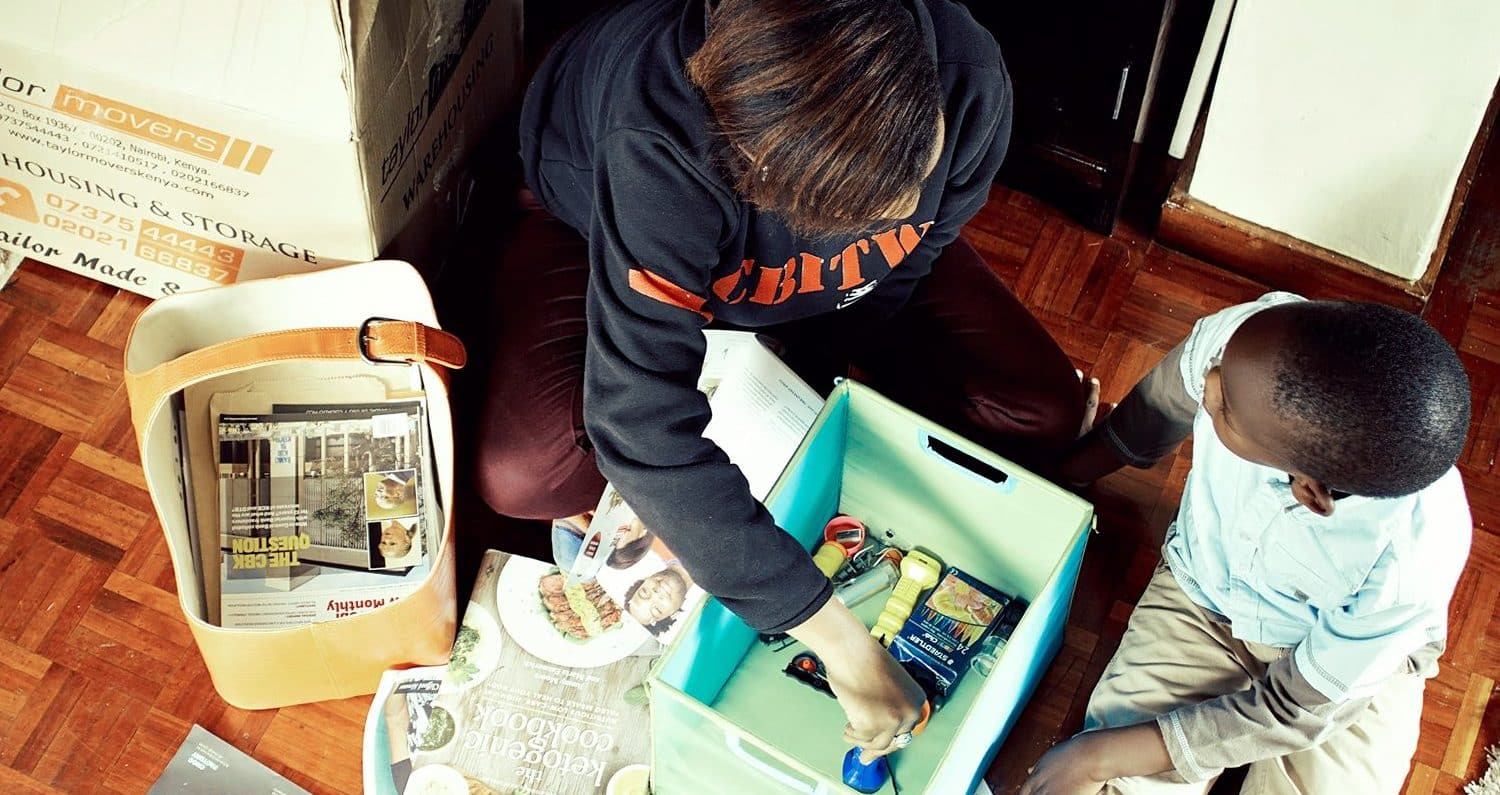
Moving from home is always said to be one of the very most hectic and stressful events in one’s personal life. Even more so when it comes to moving to a totally different continent and country, the level of stress involved can increase. For a successful relocation, choosing the best removal company is key; Taylor Movers East Africa will make sure your belongings are securely packed, loaded, transported and unloaded to your final destination.
#TIP 1: EFFICIENT RESEARCH
Most people move for various reasons, it’s either for personal reasons, relocated by employer, because of kids or to join ones family, and research is an important factor.
This can be done online, through the Expat forums and communities, in these kinds of forums one can get to know a lot about life in a particular country.
Keep in mind that most people feel very safe talking about how homesick they are or what exactly they don’t like about the new home, so don’t get distracted by the negative sentiments.
As for the children it’s important to investigate schools and access to other activities.
Even after you the research your new home, your chosen place of residence may not work for you once you get there. It is advisable to first have a rented home on a short term basis so that you can choose what suits you.
#TIP 2: VISAS AND RESIDENTS PERMITS DOCUMENTS ARE IN ORDER.
No matter the reason why you are moving or how straight your situation, unless you are a recognized citizen of the country you are moving into, you will have to make the required arrangements for work and resident permits. You may also require a visa because without all this documentation a lot of things will be put on hold for example, opening a bank account, clearing your household goods etc.
The processing of these documents vary per country, since they may take time to process, so it’s important to understand well in advice what should be provided and get everything processed before your belongings can be transported to the new country since they will be required for customs clearance at the new country.
#TIP 3: EXCHANGE MONEY
There will still be bills to pay or money to transfer to your new country.
Since banks don’t offer the best exchange rates for money transfers, it will be better to consider using the foreign exchange bureaus. Be cautious of caring large amounts of money as many countries have restrictions on the amount of money you may carry into their borders. This also increases the risk of theft, large amounts of money should be discouraged during your trip.
#TIP 4: PREPARE WELL IN ADVANCE FOR MOVING YOUR PETS
When moving overseas you need to know what the new country rules and laws on pets transportation involves, you will need to consider a professional pet transport company who will help with the processing the paperwork. From vet visits, vaccinations and quarantine ,they will know the most efficient and comfortable way to get your pet to the destination country safe and sound.
It’s also important to note and keep in mind that in some locations, it’s not easy to find a pet friendly rental home or even an apartment can be difficult and this is where research plays a major role.
#TIP 5: TAXES
Be sure to follow up and check on your tax obligations both at home and the destination country.
#TIP 6: HEALTH CARE
It’s important to find out what are the requirements for health insurance and the amount it covers in the new country, even if there seems to be no reason to acquire one, it’s never a good idea not to acquire health insurance.
It is important to have information on your health records from your previous doctor about any current treatments. This information will include your current treatment and any medications you may be taking. In the event of any emergency, medical staff in the destination country will be able to access this information to provide care to you or any family member. If there is a language barrier between the origin and destination country you should consider translating your medical records to make it easier for the medical staff to understand.
#TIP 7: LEARN THE LANGUAGE
It’s always easy to get along in many countries without having to know the local language.
Even just knowing how to say PLEASE, HELLO, EXCUSE ME…helps to make life in the new country easier.
It also helps to understand symbols or signs in public places and even paying bills.
Classes are also a good way to learn the local language and even make friends.
Consider using any of these free or low cost resources:
1. DuoLingo – Excelent Free tool. < http://www.duolingo.com/>
2. The Foreign Service Institutes’ varied list of courses. <http://fsi-language-courses.org/Content.php>
3. The Omniglot Intro to languages. < http://www.omniglot.com/writing/languages.htm>
4. BBC languages’ intro to almost 40 different languages. <http://www.bbc.co.uk/languages/other/quickfix/>
#TIP 8: BE READY FOR CULTURE SHOCK AND HOMESICKNESS
Even those who adjusts easily in new areas or are well adjusted expats yearn a bit of home, the new food that you have never eaten at home leads to irrational cravings, though , there are many expat focused Eat outs with tastes from home, though the prices may be very expensive.
Buy a few cook books to help recreate your favorite meals back home or even discover new ones with a twist of the local foods from the new country
One can help reduce the missing through, installing apps like Skype, Face time so as to have face to face chats with family or friends.

MOVING TO KENYA
Kenya is a country that boasts of beautiful sandy beaches, a cosmopolitan capital, amazing wildlife and a very rich multicultural background. Nairobi as its epicenter once known as the” city in the sun”, a vibrant city of over 3million people with a projected growth of 6.9% is a hub of activity which caters to any interest imaginable. Bumming with pubs, hotels, restaurants and a variety of many outdoor activities. It’s no wonder the increasing rate of expat community is growing by day with slot of open opportunities to work and stay. A country which captures one when you arrive and can never leave you.
Before you wish to jump and start packing your bags, there are a few things you need to consider and how to get ready to move in Kenya, because it’s a huge learning curve which involves a lot of adjustments on embracing the different cultural differences .In any case ,you need someone to help with moving to Kenya or just a move inside Kenya, we at Taylor movers East Africa can handle everything, from packing, to loading, to moving everything and unpacking is also a thing we do and help to make the whole process easier for you.
- Are you eligible to move to Kenya
So many people don’t realize that Kenya has some specific requirements when it comes to moving to its country either as an immigrant or citizen, the immigration department is strict, unless one is sponsored by a company.
- Moving around efficiently
Nairobi as its capital has many people who own cars, but there are other means like “Matatus”they are vans and are affordable ranging from $0.2(ksh.20) to $1(ksh.100).The other means is the motorbikes which are good for evading traffic and short distances, they range from $0.8(ksh.80) to $5(ksh.500) depending on the distance to be covered. Lastly is the taxis which are most expensive and better for longer distances and its advised to use the company owned taxis for security reasons.
One has to master on how to avoid the traffic, between 7am-9am the roads are very congested, the only way to avoid this is wake up early for work.Between,5pm-6pm the same traffic is crazy, the only way is leave before 5pm or stay till late to avoid the crazy traffic.
Living Standards
- When deciding on which school to take your child in Kenya it is very important to define which part of Nairobi you are going to live because this will largely determine ones social circle and also where exactly in the part of the world you come from. There are schools that offer European Systems like German, French and British.
- About picking where to stay ,this will vary according to personal choice ,if you would want to make yourself at home ,the real estate market in Kenya is booming so one an get one of the luxurious furnished apartments from Kshs.90,000,if this is pricy there are available apartments in areas like Westlands, Kilimani, kileleshwa and Lavington,which have rental apartments from $550(ksh.55,000).Furthermore ,one could live on a house budget of $250(25,000),in estates like donholm, buruburu, komarock.
- On outdoors activities,there are great options on the eating joints from Thai, indian, Mexican, chinese with a variety of international franchises for example; KFC, Coldstone, Subway and Domino. If you are craving for Kenyan cuisine there is KOSEWE.
- Lastly , join one of the many country club, they are not too expensive, they will be one of the best ways to make friends and mostly in the expat community.
If you have all of the above covered then its good to get into the next plane to Kenya and enjoy the experience. It is a very fantastic country, where sundown’s are a way of life, where there are various meanings to word like “JUA KALI”,where your sense of humor will increase ten fold, having a work life balance really is possible and even start referring to yourself as Kenyan regardless what your passport says.

If you’ve moved before then you’ve probably asked yourself, “How should I pack my household items?” It may seem trivial, but it’s a major component of any relocation if you’re packing yourself.
A list of household goods packing tips could be a long checklist of criteria one might have to go over when considering moving personal goods overseas.
It goes without saying that improper packing is one of the major concerns when it comes to breakages and damage.
Based on our years as an international moving company, we’ve created a comprehensive list of tips for packing household goods to help with any move, overseas or cross-country.
How to Pack Household Goods Safely for Your Move Overseas
Following are some of the basic materials one should consider to use for household packing:
- Always insist on using strong boxes to pack the fragile items
- Make sure the bottom of the box has additional tape to prevent opening when lifted
- Wrap all fragile items individually in bubble wrap or packing paper
- Corrugated boxes that can be closed shut are highly recommended to secure your belongings
- Plan on using a lot of strong packaging tape, labels and markers to clearly identify the content being places in various boxes
- Try and use blank newspapers, plastics or bubble wraps to fill the empty spaces in the cartons
Different household goods will have to be handled in different ways to ensure they are secured correctly packed and can be moved easily. One could come across all sorts of different household goods varying in shapes, sizes and weights.
Investing time and effort by creating an international moving checklist also helps ease out the entire process. It’s a good practice to reach out to overseas moving companies and seek information from their knowledge database.
Following are some pointers to pack some of the commonly found household items:
Electronics
- Remember to unplug all electronics
- Refrigerators need to be unplugged 24 hrs prior to loading as they need to drain of excess water and ice
- Tape the inner table in a microwave oven so it does not move inside and break the glass door
- Check the device manuals for all appliances for any special instructions
- Double pack electronics with glass screens safely to ensure they do not break
Kitchenware
- Fragile bone china and ceramic kitchenware needs to be packed in bubble wrap
- Glass containers and sharp cutlery should be wrapped with extra packaging
- Place paper between all plates/bowls/cups and dinnerware to prevent chipping and breaking
- Wrap cutlery and utensils together in tight bundles and bubble wrap before putting in boxes
- Wine glasses/ vases / crystal pieces etc, should all be double wrapped in paper and bubble wrap
Small Furniture Products
- Ensure the edges are fully covered to prevent chipping
- Remember to protect the surfaces with a bed sheet to prevent scratches
- This furniture will probably be double stacked in the truck and container so all surfaces must be well protected
- For a more comprehensive list, read our advice for packing furniture
Other Items
- Books can be packed in corrugated boxes – don’t over pack large boxes as books are heavy. Pack in multiple small boxes
- International sized bags could be used to pack clothes and shoes
- Wardrobe boxes with hangers are available from your service provider
- Photo frames can be packed by placing packaging paper between multiple frames
- Fine art, pianos, and musical instruments all have unique requirements for packing – please consult your service provider
The most important thing is to have an in-depth discussion with your shipping consultant while making your initial inquiry. If you disclose all-important information about all the articles that you need moving, it makes the whole process easier to organize from a shipping, packing and loading point of view.
We offer professional and affordable packing services to all our clients who may not have the time to pack themselves
Remember, moving internationally is a three-step process.
- Making sure you have all your household goods packed thoroughly, either by yourself or a professional moving crew
- Moving these items from the house to the loading warehouse for loading into a container for ocean freight
- Careful unpacking of the goods upon arrival at your new destination.
If you are looking for a one stop shop and a company that will manage all three of these aspects and give you peace of mind, or have questions about your international move, Taylor Movers will be happy to work with you.
So what are you waiting for? Request a free overseas moving estimate by calling us today or by completing our quick quote form.

Raise your hand if this sounds familiar. You’ve just decided to move to a new place. You’re unbelievably excited and enthusiastic. Then, almost as soon as the rush of delight came on, reality sets in for you. You look around, with a growing sense of dread, at all of your stuff, the stuff that now needs to be packed into a box, carried into a moving truck, and moved. Just thinking about it makes you want to change your decision about moving, and you haven’t even started the process yet.
We’ve all been in situations like this. Somehow, unknown to us, our stuff piles up in drawers and hidden corners so that when it comes time to pack it up, the job seems overwhelming. Where did it all come from? When did we buy it? We always knew that decluttering and downsizing your home and life was necessary, but could never get ourselves to actually do it. Well, the good news is that it’s never too late to begin your decluttering efforts, which will no doubt dramatically lessen the number of boxes to be packed and carried down the stairs on moving day.
Ready to get started? Here are 7 useful tips:
- START EARLY
It doesn’t matter if you’re moving next month, six months from now, or you don’t even have any plans to move. Start decluttering today. I know it’s tempting to continue to put it off as you tell yourself you’ll do it once you’ve moved into the new place. But think about it: why go through all the hassle of moving your stuff only to eventually get rid of it? When you do move, you’ll save a load of money by doing it now because you’ll need fewer boxes and a smaller truck.
That’s also fewer things you have to waste your physical and mental energy on when moving things back and forth. Lastly, not only will you have drastically simplified your life, but downsizing and decluttering will also help you make giant progress towards making your house one of those energy efficient homes you’ve always admired, the economy almost requires it.
- START SMALL
Looking at a house full of stuff you need to sort through can be really dispiriting. I know, I’ve been there too. This is why you need to start small. Focus on areas like your bedroom closet, or the living room TV cabinet. Don’t try to do an entire room at once unless you’ve already won a medal for decluttering. Trying to tackle a large space, especially if you have a lot of items to sort through, is draining and might extinguish your motivation. Small spaces over a longer period of time give you a sense of accomplishment because they can be completed in a matter of hours. Looking at the progress you made, and the pile of junk that’s getting donated, will keep you motivated and excited about the next session.
- BE PREPARED
Before you get started decluttering an area, make sure you have everything you’ll need right there. This includes several boxes (one for trash, one for recycling, one for donations, one for “thinking about” items), a shredder (optional obviously), plenty of water, and some great tunes to keep your spirits up.
- PUT IT TO THE TEST
My last move involved going from a nice-sized home to a smaller one. All my stuff had to go up three flights of stairs since there was no elevator. I examined every item in my home and asked “Do I want to carry you up three flights of stairs?” Most of the time, that answer was “no.” I got rid of more than half of my possessions using this simple question. Look at the items you own and ask yourself if you love it enough to pack it up, carry it out to the truck, and haul it up the stairs. You can even pretend you’ve got to carry them up three whole flights, like me. This works even when you are using professional movers.
- DO THE KITCHEN
Go through your kitchen and throw out anything with an expired date or that has gone stale (this especially goes for spices, which usually don’t last longer than 6 months to a year). Use this time to also get rid of any cookbooks you haven’t cracked open in the past year, and any strange kitchen gadgets you really don’t have a use for, broken or lost pieces of kitchen ware and outdated items that you know will not be used in the foreseeable future.
- KEEP GOING
Make decluttering part of your everyday routine. Set up a Donate bin in your bedroom closet. Every day, find at least one thing to put in there. Do you have a pile of unwanted gifts you’ve received over the years that you’ll never use? Add those to the pile too! When it gets full, take it to a childrens home or a foundation for needy families and so on. As another option, if you decide to make money selling these unwanted products through e-commerce sites, social media or garage sales, you’ll be able to develop some awesome passive income stream opportunities.
- DEEP CLEANING
It’s also important to set aside time, at least every weekend, to do deeper decluttering. Mark this time off on your calender so you don’t forget. And, make it fun! Promise yourself a reward, like dinner out with a friend, after you’re done with a weekend session. This will help keep you motivated.
What are your thoughts on decluttering? Do you have any good strategies that have worked for you when trying to decide what to throw out and what to keep?

“Home! I want to go hooooooome!” my 3-year-old son, David, wailed through a waterfall of tears. “Hoooome!” I rocked him back and forth in my lap, trying to figure out how to respond.
“Baba, we are home,” I finally offered, pointing around his room in our new house, which we had moved into just three days before. “Look, there’s your crocodile, your dinosaurs, your…”
“Nooooo! No, no!” he shrieked. “I want to go home!”
For any parent who has moved with young children, this is an all too familiar narrative.


When people decide to move, one of the biggest challenges is packing up the household. Whether you’ve lived somewhere for three years or 30 years, chances are good you didn’t realize you had so much stuff.
While some people opt to hire professional movers, others are more the do-it-yourself type. If that’s the case, here are some tips on being a successful do-it-yourself packer, from those of us who have made a career of packing and moving households.
 (
(

